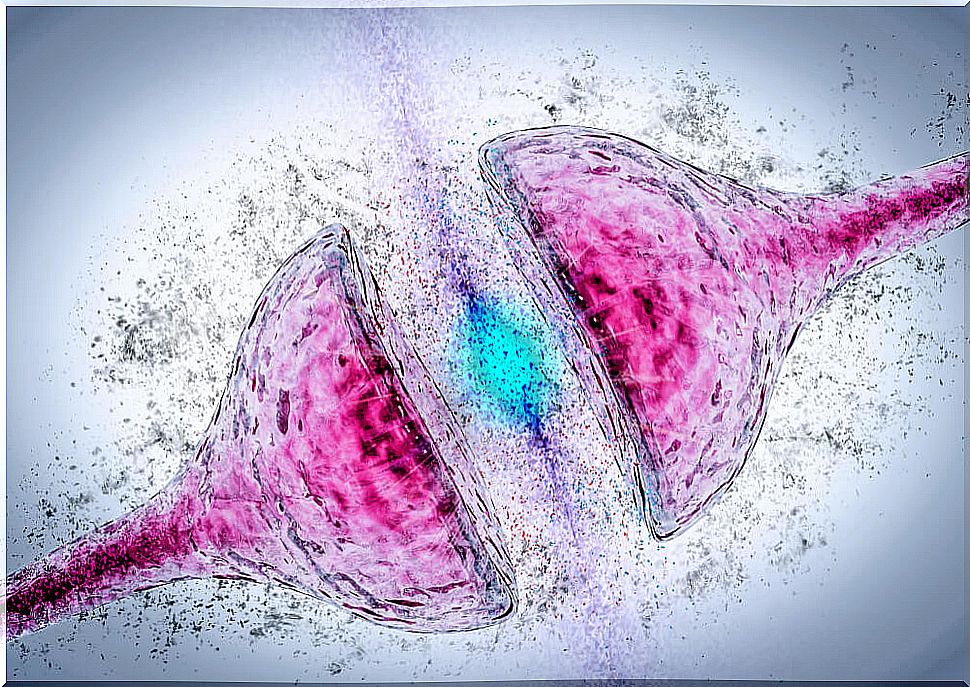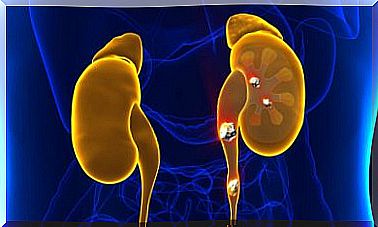Alpers Syndrome: A Rare And Progressive Neurological Disease
At the moment, Alpers syndrome is an incurable disease that usually leads to death in the first decade of life.

Alpers syndrome, also known as Alpers disease, is a progressive neuronal degeneration that occurs during childhood. In other words, a degenerative disease of the central nervous system, which evolves continuously.
The first time that Alpers syndrome was discussed was in 1931, in the United States. The person who initially described it was the neurologist Bernard Alpers. In 1971 Peter R. Huttenlocher discovered that the disease had a strong impact on liver function.
Therefore, this disorder is also called Alpers-Huttenlocher syndrome. So far it is not known exactly how many people in the world suffer from it. However, it is estimated that 2 out of every 100,000 people suffer from it.
What is Alpers syndrome?
Alpers syndrome is a multisystemic disorder, that is, it involves dysfunction in various body systems. It is characterized by a serious condition of the gray matter of the brain and liver, mainly.
This disorder is part of the so-called mitochondrial diseases. Mitochondria are small units of the cell, whose function is the production of energy. When they do not work properly they cause different types of symptoms.
In those affected by Alpers syndrome, there is a clinical triad, that is, three sets of symptoms. These are: psychomotor retardation, intractable epilepsy, and liver failure. It usually manifests itself in children between 2 and 4 years old. Exceptionally, it occurs in early adolescence.
Causes

Alpers syndrome is caused by mutations in the POLG1 gene. This is like a kind of template to produce the DNA polymerase gamma protein. This is absolutely necessary to copy and repair the DNA of the mitochondria.
When there are PLG1 mutations, the mitochondrial DNA repair mechanism is damaged. This results in a condition called depletion. The consequence of this is an inability of the mitochondria to produce energy. This leads to progressive cell damage.
In Alpers syndrome, nerve cells in the cerebral cortex are damaged. Fatty liver also develops, with increasing liver failure. Science does not know the reasons why these specific damages occur.
Symptoms
People affected by Alpers syndrome present symptoms that mainly involve the functions associated with the muscles, nerves and the brain. They present three characteristic symptoms :
- Liver disease
- Loss of mental and movement skills, or psychomotor regression.
- Seizures that keep coming back and don’t get better with any treatment. This is what is called intractable epilepsy.
Similarly, those with Alpers syndrome may present:
- Vision problems and even blindness.
- Neuropathy, or disturbances of nerve function.
- Areflexia, that is, absent or abnormal reflexes.
- Myoclonus, or involuntary muscle contractions.
- Ataxia, or problems with coordination and balance.
- Hypotonia, or weakness in muscle tone. It gets worse, until you lose control over your muscles and movement.
- Choreoathetosis, that is, the presence of uncontrollable movements in the extremities.
Additional symptoms such as migraines with aura or visual sensations are also possible. Likewise, there could be decreased brain function, which manifests as drowsiness, difficulty concentrating and irritability, among others.
Diagnosis and prognosis

Alpers syndrome is usually diagnosed during childhood, based on a thorough clinical evaluation. The patient’s medical history and the results of some specialized tests are also taken into account.
In principle, the typical symptoms of epilepsy, signs of brain damage and liver failure are taken into account. This allows suspecting the existence of Alpers syndrome. At first, clinical examinations may not reveal changes in the brain.
Blood and cerebrospinal fluid tests show elevated lactic acid levels when Alpers syndrome is present. There is also a high protein content in the back fluid. Meanwhile, enzyme tests show liver damage.
There is no cure for Alpers disease. Typically, progressive deterioration occurs during the first decade of life. The outcome is death, usually due to liver failure. Treatment is only palliative.









